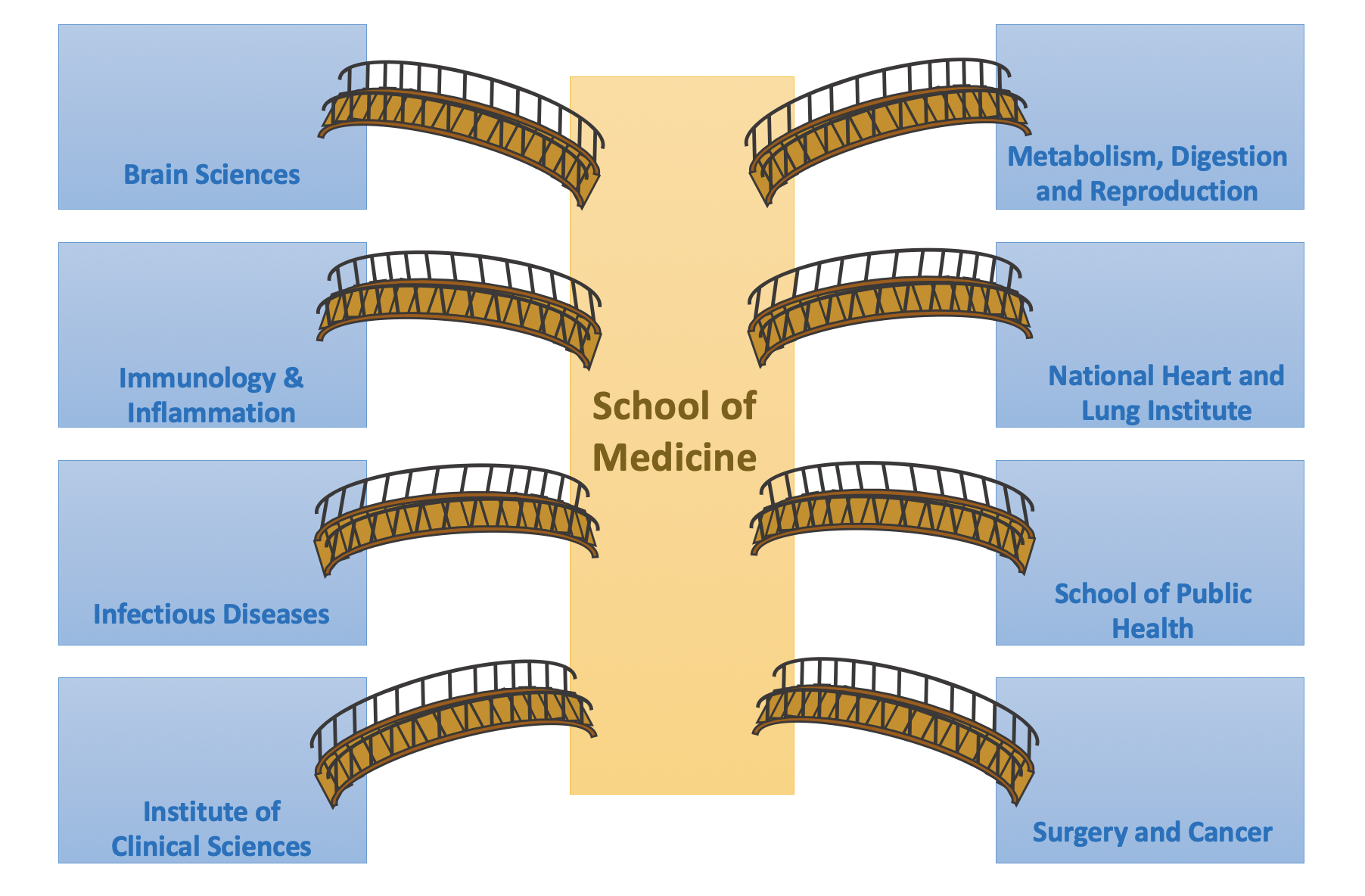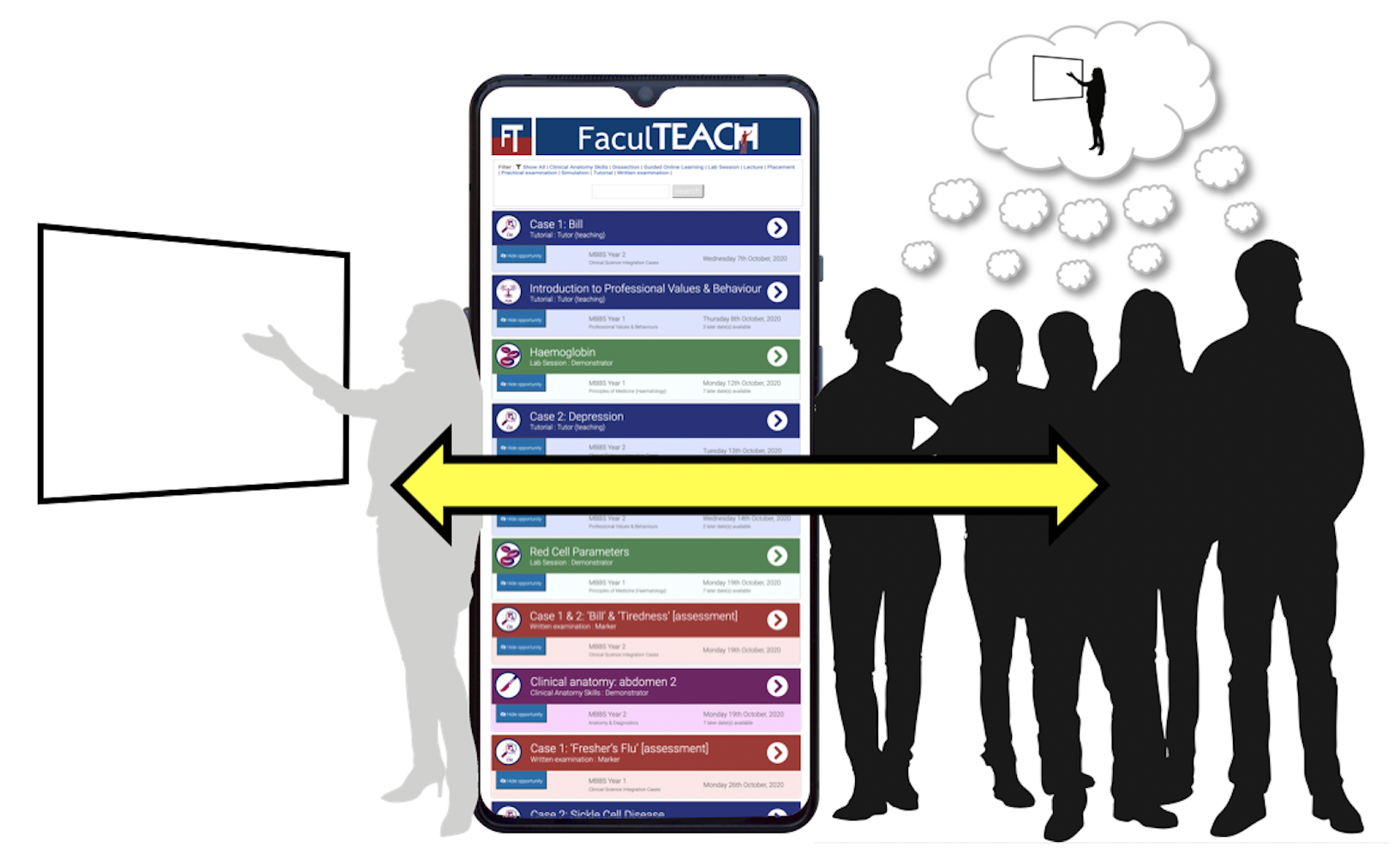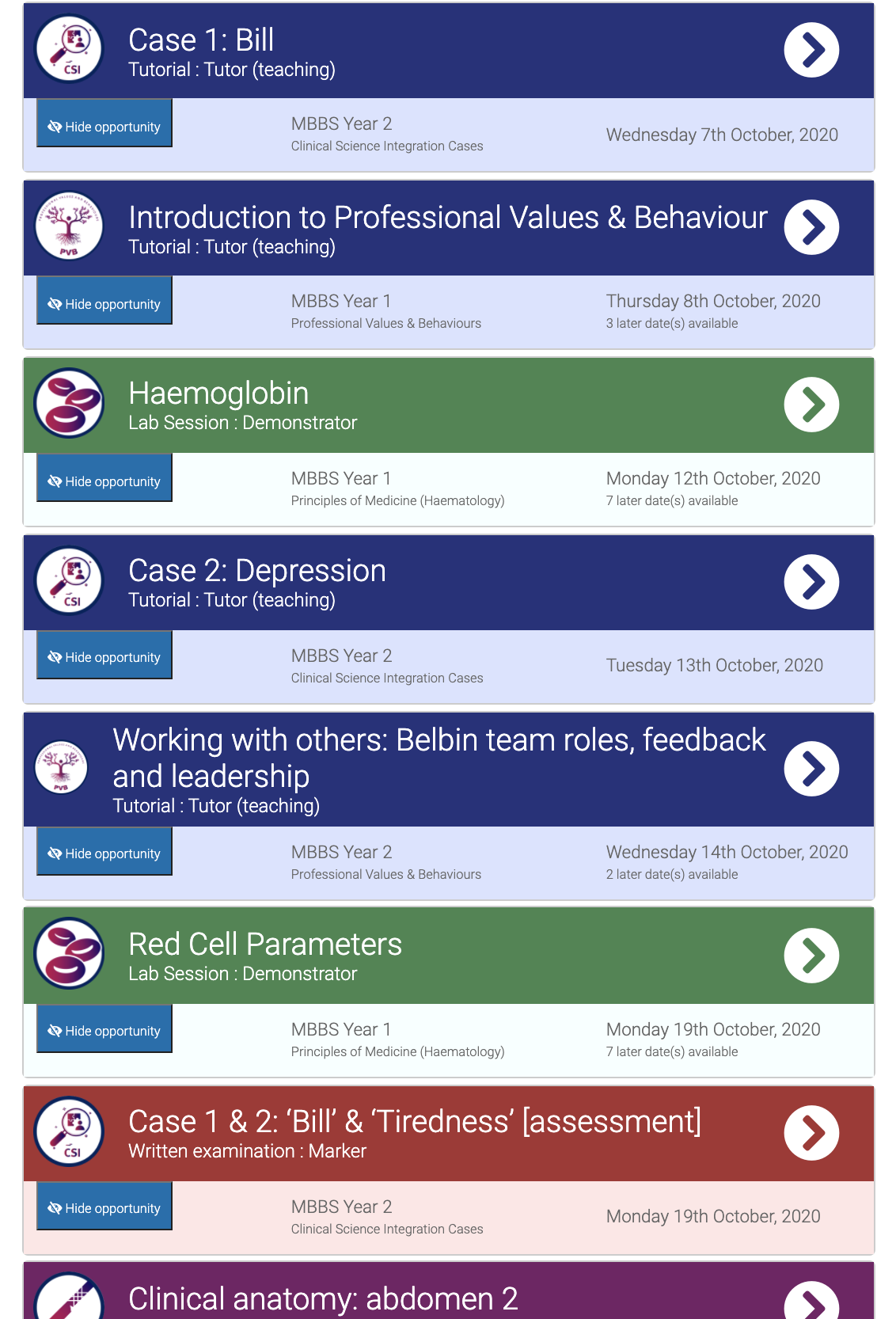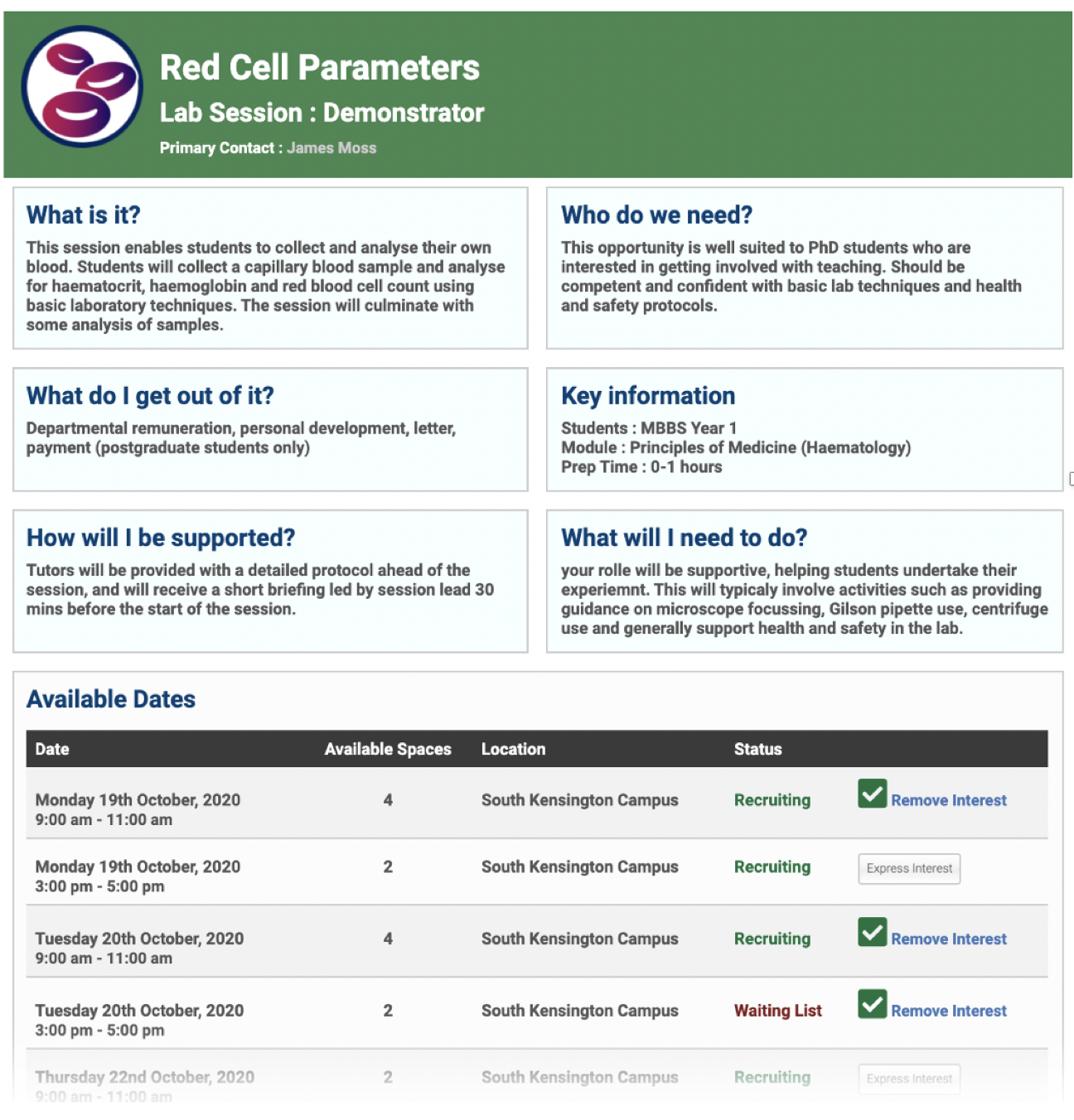Education has always been part of universities’ identity, but with recent changes in how we teach students – both before and after the response to Covid-19 – we have transitioned from a lecture-based teacher-focused programme to a group-based student-focused programme. As such, our tutor requirement has increased at least four-fold. With more teaching opportunities, we need a way to widen access to these opportunities to our departmental staff and build bridges to School of Medicine activities.

The unmet need
There is currently no robust way to connect people who want to teach with available teaching opportunities
On countless occasions in my six years at Imperial I’ve spoken with colleagues in various Faculty of Medicine departments who had absolutely no idea about the structure of our undergraduate degree programmes (BS. Medical Bioscience and MBBS Medicine), let alone whether there are any teaching opportunities. This is not their fault, but a product of our siloed structure. Importantly, these were rarely new staff, instead they were often established researchers and graduates of the CASLAT (Certificate of Advanced Study in Learning and Teaching) programme from the early 2000s. Invariably, I was talking to these individuals because they were interested in engaging with education activities, and I was only too quick to signpost them to the teaching leads associated with areas of the curriculum they’d be well suited. Colleagues at an earlier stage of their career would often identify key barriers to engagement as described below.
The fallacies of education
Below are three of the most prevalent fallacies I have encountered when talking to colleagues about teaching:
- I can’t teach medical students, I’m not a medic…
- This may seem the intuitive position, but medicine is a multifaceted programme underpinned by science with opportunities for everyone. Although teaching a neurological examination in clinical skills sessions may be a medic’s bread and butter, many teaching sessions require expertise that researchers excel at (including data analysis, critical appraisal of evidence and laboratory techniques)
- I can’t teach, I’m just a post-doc…
- Academia is a hierarchical discipline, and historically research careers could flourish without any teaching activity. Now, at all levels it is important to develop teaching experience/expertise as education is one of the four pillars of promotions applications. PhD students should be encouraged to develop in education activities
- At universities, teaching = lecturing
- Lectures are one type of teaching and now constitute <10% of our undergraduate programmes. The other 90% include group teaching, laboratory experiments, skills training, placements and more – each of which requires a team of people for delivery, rather than a single person. Also, important non-teaching education activities such as question writing, marking, admissions interviews and welfare support are central to our programme.
In short, there are teaching opportunities available for staff and postgraduate students at every stage of their career, where they can leverage their knowledge and expertise to educate the great minds of tomorrow while developing their teaching skills (and generating departmental income).
A moment of inspiration from matchmaking apps…

For the last two years, I have conceptualised the solution to our problem based on the mechanics of popular swipe-based dating applications. Those dating apps enable you to rapidly determine the suitability of a match using superficial information like name, age and a photograph. This information enables users to quickly decline unsuitable suitors and to explore, without commitment, those that have retained a threshold level of interest. Swiping right is not a commitment to marriage, but simply a ‘there’s potential here, let’s talk!’
With this inspiration in mind, we built a web app according to two core features:
- All opportunities posted need to be transparent in their requirements and recognition, and available to all Faculty staff
- Users should be able to express interest in a particular session without committing to it outright. After an expression of interest there should be a discussion between the named lead and the user about the session and whether it’s a good match. If both parties are happy, the user is recruited
In early September we launched FaculTeach to address our unmet need.
Introducing FaculTeach

FaculTeach can be found at www.faculteach.com, which redirects users back into the College system via single sign-on.
The landing page includes some basic instructions at the top, followed by a list of current opportunities (see fig X). Each opportunity displays high-level data including:
- Name of the teaching session
- Session type
- Role required
- Students’ programme and year
- Date(s)
There’s also a search field that can allow you to search all opportunities for keywords (e.g. ‘renal’ or ’TBL’).

This information enables users to make a high-level determination about the suitability of the opportunity. If they’re interested, they can click the title banner for more information (see below) or they can click Hide opportunity to hide it from the table.
The opportunity page provides more detail about the session and what is involved. This includes detail on the type of person needed and how they’ll be supported with the session. At the bottom is a list of the available dates and times. An ‘Express Interest’ button enables you to raise your virtual hand and say “From what I’ve seen, I’m interested, and I’m available on this date/time. Please get in touch with me to discuss”.
This can be easily reversed if you change your mind.
Interested?
If you’re interested in exploring teaching opportunities, please visit FaculTeach (over 600 hours of opportunities were included at launch) and have a look. Think of it like going into the supermarket and not buying anything. There’s no obligation to express interest, but you never know what exciting opportunities you might find.
We’ll be adding features and new opportunities regularly, and we’ll keep you up-to-date with progress via the Faculty and your departmental communications.
If you have any questions you can reach out to your departmental Director of Education or James Moss